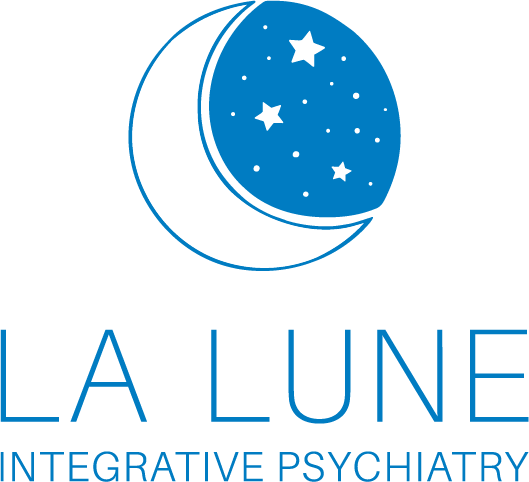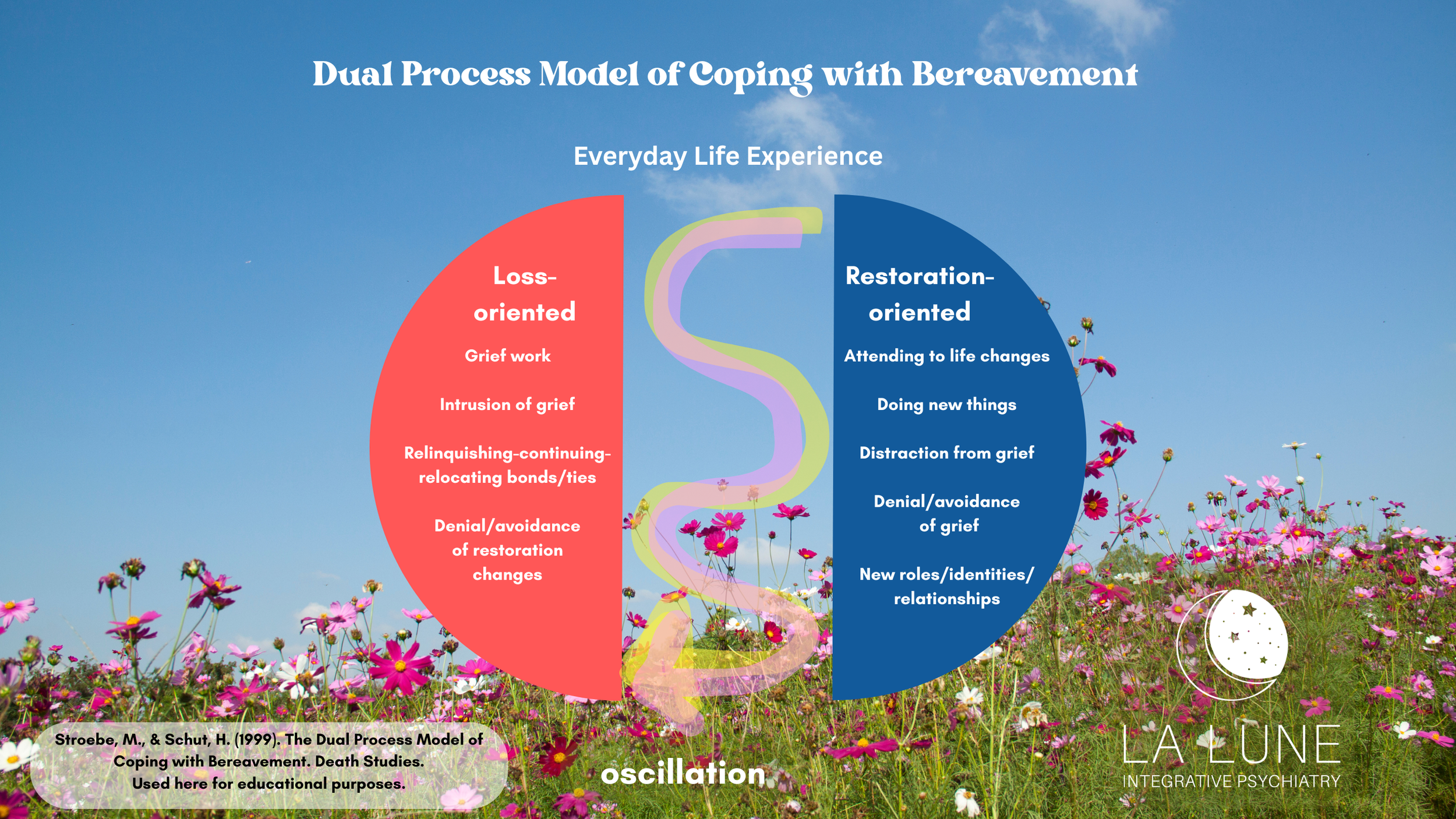
Therapy or Medication Management for Panic Attacks
Personalized treatment to calm the body, quiet the mind, and regain a sense of safety.
When Fear Feels Physical
A panic attack can feel sudden and overwhelming — heart pounding, shortness of breath, chest tightness, or dizziness that appears out of nowhere. Many people describe it as feeling like they’re “losing control” or having a medical emergency. These intense moments can make it difficult to trust your body, even between episodes.
At La Lune Integrative Psychiatry, we understand that panic attacks are not “overreactions.” They are real physiological responses, often triggered by the brain’s alarm system misfiring under stress, trauma, or sometimes out of nowhere. With the right evaluation and care, you can learn to reduce their intensity and frequency — and feel more confident in your body again.
Understanding Panic Attacks and Panic Disorder
Panic attacks can occur independently or as part of Panic Disorder, where repeated episodes and fear of recurrence begin to disrupt daily life. For some, panic occurs alongside other conditions like generalized anxiety, PTSD, or depression.
Common symptoms include:
Rapid heartbeat, chest discomfort, or shortness of breath
Sweating, shaking, or feeling overheated or chilled
Dizziness, numbness, or feeling detached from surroundings
Fear of losing control, “impending doom”, or death
Not every panic experience is the same — and not all require the same treatment. That’s why a comprehensive assessment is essential to clarify what’s driving your symptoms.
Our Approach to Treatment
We take a whole-person approach to help you regain calm and confidence.
1. Comprehensive Evaluation
We assess physical and psychological contributors, ruling out medical causes such as thyroid or cardiac issues, and reviewing your stress history, environment, and lifestyle factors.
2. Therapy for Panic and Anxiety
We use evidence-based therapy approaches, such as Cognitive Behavioral Therapy (CBT) and interoceptive exposure, to help you understand and retrain the body’s alarm response. Mindfulness and grounding techniques are also integrated to build self-regulation.
3. Medication Management
When appropriate, we discuss short-term or long-term medication options. SSRIs and SNRIs are often first-line treatments, while other medications may be used for stabilization or in combination with therapy. Our providers focus on personalized dosing and close follow-up to ensure comfort and safety.
4. Mind-Body and Lifestyle Supports
We emphasize gentle, consistent habits that calm the nervous system: breathwork, sleep regulation, movement, and nutrition. Lifestyle coaching helps you identify and change triggers while improving your overall resilience.




















